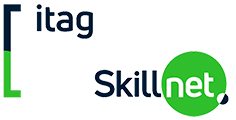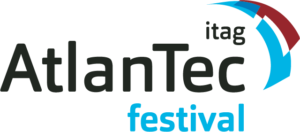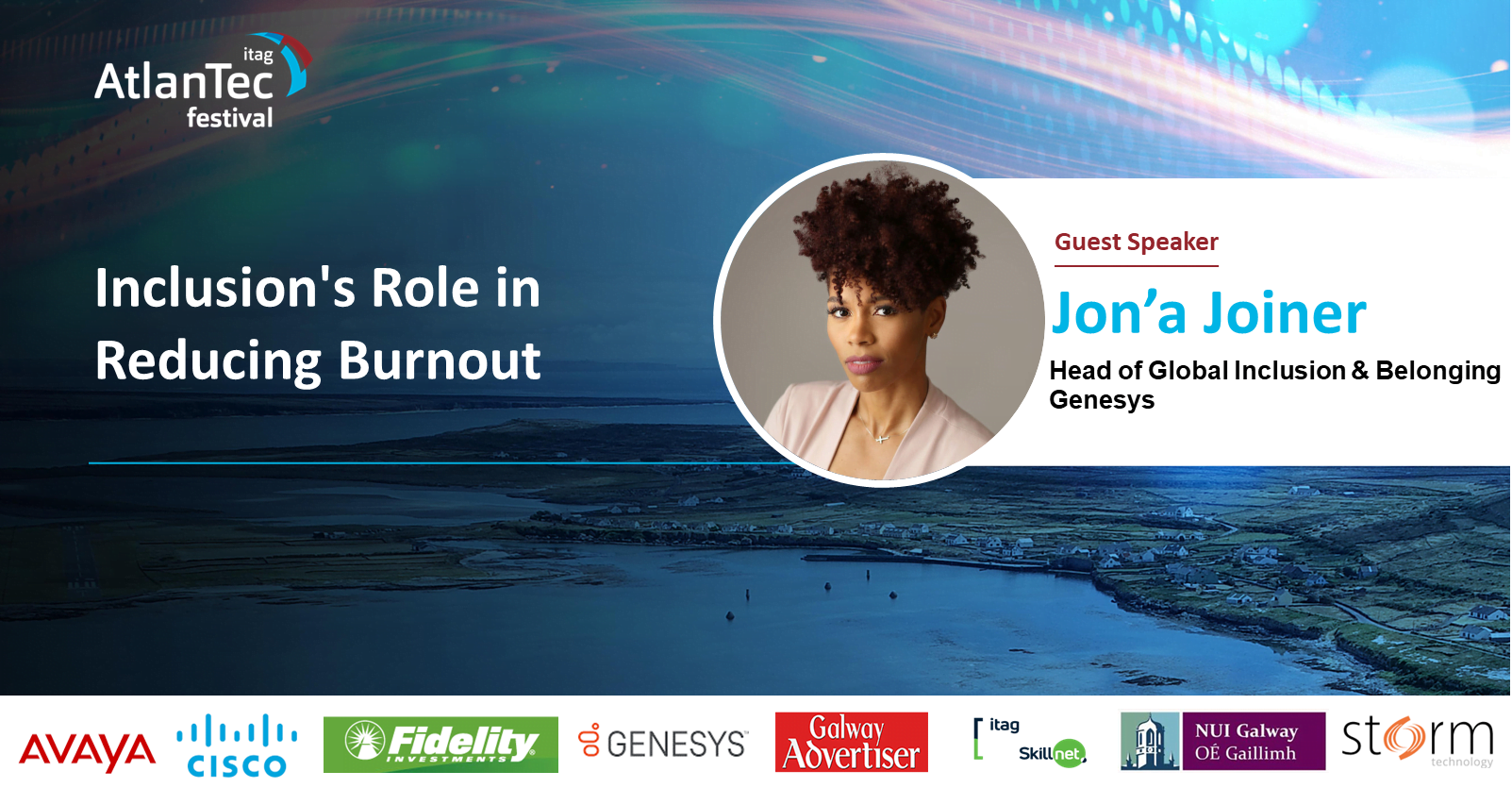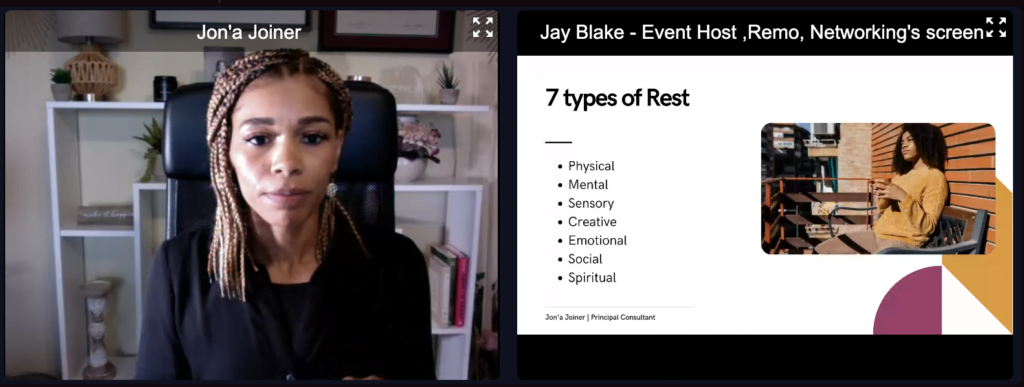AtlanTec Festival 2022
Mental health is overlooked and still stigmatised, especially in corporate culture. The first step in breaking the stigma is to talk about it, but it can be hard for people to talk about something that they can’t see. It’s even more difficult to talk about in communities of colour, LGBTQ+ and women. Underrepresented groups are less likely to receive the help they need. If someone identifies as more than one of those underrepresented groups, it can be overwhelming
That was the outline of the talk given by Jon’a Joiner, Head of Global Inclusion & Belonging at Genesys, during her presentation on ‘Inclusion’s Role in Reducing Burnout’, as part of the AtlanTec Festival 2022.
Prior to Genesys, Jon’a spent several years as a corporate communicator, where she led total rewards, employee engagement, and diversity & inclusion communications, was a key thought leader for diversity recruitment and retention, oversaw business resource group councils and partnered with HR to establish inclusive awareness and employee engagement initiatives across multiple campuses. Most recently, Jon’a led her own consultancy firm, JFJ Group Consulting, where she helped organizations develop tailor-made solutions to develop, engage, and retain women and people of color.
As Jon’a’s presentation set out, temporary stress is normal, burnout is not. Burnout is a response to extended excessive stress that leaves one mentally and physically drained, cynical, detached, feeling empty, and less effective.
Overhustling and burnout is not a badge of honor. Stressors and pressures from work and family can lead to burnout, especially for those that feel that they have to do all the work themselves, and be everything to everyone. The effect of those stressors can be devastating to the individual. Most missed workdays have to do with burnout.
Burnout can happen with any employee in any organisation. However, it’s more common to happen to those that are in marginalised groups. To break the stigma of burnout and mental health it’s important to be inclusive, and offer support and resources, but know they won’t look the same for everyone.
Microaggressions and put-downs are something that marginalised groups feel daily. This can range from being watched for theft in a store because they look different or saying something that could be well-intended such as, “You’re so articulate for a woman of colour.”
Marginalised groups spend a lot of time focusing on stressors and how to deal with microaggressions from their colleagues instead of focusing on their job and doing it well.
People stop contributing if they don’t feel valued. Someone that doesn’t look like most of their colleagues or doesn’t have the same background as them can find it hard to fit in.
Microaggressions can lead to chronic stress and burnout. Racism and biases should not be ignored when talking about mental health. Instead, they should be at the forefront of the discussion.
There are various ways to reduce stigma and create an inclusive workplace for those dealing with mental health challenges and burnout.
Increasing awareness and giving employees access to educational resources is one of the first steps. Companies should include mental wellness in wellness benefits, some companies do this but it’s still not common practice.
Building inclusive leadership in every department helps to build and spread cultural awareness and fluency. When it comes to breaking the stigma leaders have to be involved and they need to vocalise these behaviour changes.
Companies must encourage employees to lead a healthy work-life blend. This is absolutely critical to avoiding burnout. Employees have to work to figure out what a healthy blend is and that needs to be encouraged by leaders in their workspace.
Continuously tracking and monitoring employee morale is crucial to know when there needs to be an organisational shift. This can be done with employee feedback forms or surveys.
Burnout and mental health are extremely important to be aware of in any business for all employees. Businesses should not only focus on the mental health of their employees to help reduce furture burnout but be aware from the top-down that those in marginalised groups might be prone to a quicker burnout and less likely to seek help as it is still stimatised in those marginalised communities.
Jon’a is just one of the fantastic speakers who presented for AtlanTec Festival 2022.
We are currently planning for AtlanTec Festival 2023, we would love your input if you have time to complete our questionnaire. AtlanTec Survey
Sign up for our newsletter to keep up to date on what is happening for AtlanTec 2023, click here
For more blogs and video content from AtlanTec 2022 check out our Member’s Library
Further details and the full schedule are available on www.AtlanTec.ie






